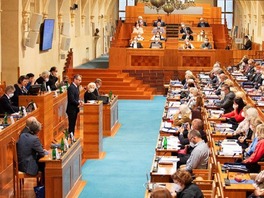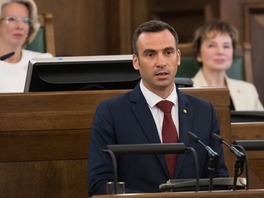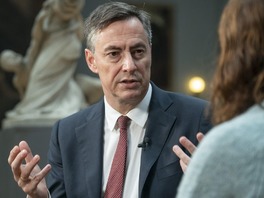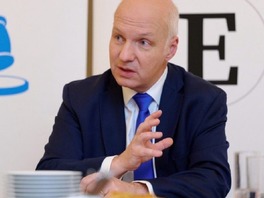At the annual Alliance summit in Washington, NATO is likely to offer our country a security assistance package. However, it is unlikely to meet Ukraine's request for NATO membership amid Russia's invasion.
This is reported by "Defense News".
According to the U.S. Ambassador to NATO, Julianne Smith, besides the package provided in July, 32 more countries are finalizing a series of bilateral agreements to support Ukraine ahead of the summit—13 of which have already been concluded.
‘Allies will be putting forward a whole package of deliverables that will serve as a bridge to their membership inside the alliance,’ Smith said at a Defense Writers Group roundtable on Monday. ‘Part of the package will be the language we use to describe Ukraine’s membership aspirations in the declaration itself.’
Additionally, Julianne Smith noted that these actions will partly signify the formalization of certain bilateral support currently provided to Ukraine, as well as its transfer under NATO command.
‘Part of it will be working to identify new resources for our friends in Ukraine, and ensuring that we send a signal to Moscow that the NATO alliance isn’t going anywhere,’ Smith added.
The publication emphasized that during NATO Secretary General Jens Stoltenberg's visit to Kyiv in April, he expressed his conviction that ‘Ukraine will join NATO.’
“The work we are undertaking now puts you on an irreversible path towards NATO membership, so that when the time is right, Ukraine can become a NATO member straightaway,” Stoltenberg said.
Moreover, some defense companies from NATO countries have shown interest in jointly producing certain military assets, such as drone systems. Recently, in May, the United States announced a $2 billion external military aid package for Ukraine, primarily aimed at supporting the development of Ukraine's defense-industrial base.
‘This is coming from, in large part, European or Canadian or American companies that are looking at co-production opportunities,’ Smith told.
According to Stoltenberg, Europe and the U.S. will continue to support Ukraine even after the election of a new American president.
‘Ukraine continues to fight bravely, but the challenges they face are greater and growing. Ukraine can still prevail – but only with continued, robust support from NATO Allies,’ Stoltenberg said.
He also proposed that annual funding from allies for military aid should be at least EUR40 billion.
‘I have proposed that Allies commit to a multi-year financial pledge for Ukraine. Since Russia’s full-scale invasion in 2022, Allies have provided approximately 40 billion euros worth of military support to Ukraine each year. We must maintain at least this level of support each year, for as long as necessary. I have also proposed that Allies should share this burden equitably. This will improve accountability, and give Ukraine the predictability they need to plan for the long term,’ Soltenberg said.
NATO membership without full control over territories: feasible?
Since NATO's inception, its charter has clearly defined the territories covered by Article 5 on collective defense. Among other things, it did not include colonies under the control of Great Britain and France at the time. Alliance guarantees for certain parts of Ukraine's territory are an intriguing proposition, but this by no means implies a change in Ukraine's borders, as they are not determined by NATO.
This was stated by the head of the Public League "Ukraine-NATO," Serhiy Dzherdzh, during an interview on the FREEДОМ television channel.
He commented on the remarks of the Prime Minister of Estonia, Kaja Kallas, regarding the possibility that Ukraine's accession to the Alliance without some territories would still be a victory, as at least part of Ukraine would be protected.
‘This is a very interesting and correct proposal, I think, given the current circumstances. The thing is, NATO does not change borders. Borders are recognized by the global community... If a country, such as Ukraine, becomes a member of NATO, it becomes a member of NATO fully with all its territory. And Article 5, for example, or any other article, one can conclude that this article applies to the territory controlled by the central government. And this is not a precedent for NATO. It has been there since the inception of NATO,’ Dzherdz said.
He emphasized that such a precedent could be quite successful for Ukraine.
‘In NATO, a country enters with its borders regulated by international law, that's the first thing. Second: the territory controlled by the central government falls under the protection of Article 5. And if Russia were to seize even one village after this fact, it would essentially be starting a war with NATO. But for Ukraine, this legislation and this option do not remove the possibility of reclaiming its territories. We have the right and, I believe, will do everything possible to reclaim our territories in any way. I think if such a scenario were to occur, Russia itself would gradually back off and give Ukraine peace,’ he said.






